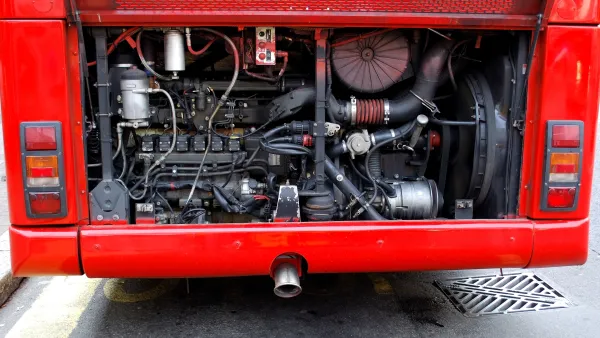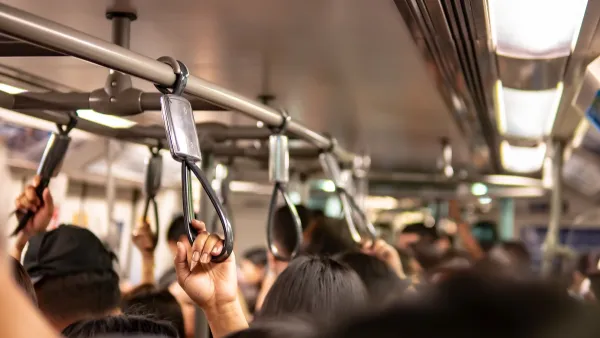Why would the nation's major public transit organization work so closely with America' major road lobbying group, even when it comes to opposing landmark climate legislation aimed at reducing 33% of U.S. greenhouse gas emissions from transportation?
The strange alliance has proved beneficial in Congress, providing a framework for compromise amongst Democrats, Republicans, and urban, suburban and rural interests, notwithstanding the apparent short-changing of the transit advocates.
"Here's one inconvenient truth holding in line the status quo of automobile dependency in the United States: the nation's primary proponent of transit, the American Public Transportation Association (APTA), stands on virtually every issue hand-in-hand with the American Association of State Highway and Transportation Officials (AASHTO), the nation's main advocates of increased highway spending.
APTA and AASHTO have shown themselves committed to retaining a structural funding split in favor of highways over other modes of travel, despite the fact that that reliance systematically enforces automobile dependency. The organizations' approach to the Senate's proposed energy and climate legislation has been little different. in a joint statement in mid-May, APTA and AASHTO argued against the bill because about two-thirds of new revenues sourced from fuel consumption would be directed to non-transportation related investments, equivalent to heresy in their minds."
From Pittsburgh Post-Gazette: Transportation interests oppose new climate bill: "Twenty-eight groups representing government transportation officials, trucking interests, mass transit operators, transit employees, motorists, construction workers and contractors said the legislation would impose higher fuel tax costs but divert most of the money from transportation improvements." [See Coalition letter on transportation funding and the American Power Act"].
However, other transportation groups endorse the transportation approach in the legislation. "The American Power Act represents a key step towards creating a long-term policy that will meet our country's future climate, energy and transportation goals, "said Transportation for America Director James Corless.
Thanks to Marilyn Skolnick
FULL STORY: The Highway-Transit Alliance Strains the Senate's Energy Legislation

Analysis: Cybertruck Fatality Rate Far Exceeds That of Ford Pinto
The Tesla Cybertruck was recalled seven times last year.

National Parks Layoffs Will Cause Communities to Lose Billions
Thousands of essential park workers were laid off this week, just before the busy spring break season.

Retro-silient?: America’s First “Eco-burb,” The Woodlands Turns 50
A master-planned community north of Houston offers lessons on green infrastructure and resilient design, but falls short of its founder’s lofty affordability and walkability goals.

Test News Post 1
This is a summary

Analysis: Cybertruck Fatality Rate Far Exceeds That of Ford Pinto
The Tesla Cybertruck was recalled seven times last year.

Test News Headline 46
Test for the image on the front page.
Urban Design for Planners 1: Software Tools
This six-course series explores essential urban design concepts using open source software and equips planners with the tools they need to participate fully in the urban design process.
Planning for Universal Design
Learn the tools for implementing Universal Design in planning regulations.
EMC Planning Group, Inc.
Planetizen
Planetizen
Mpact (formerly Rail~Volution)
Great Falls Development Authority, Inc.
HUDs Office of Policy Development and Research
NYU Wagner Graduate School of Public Service



























